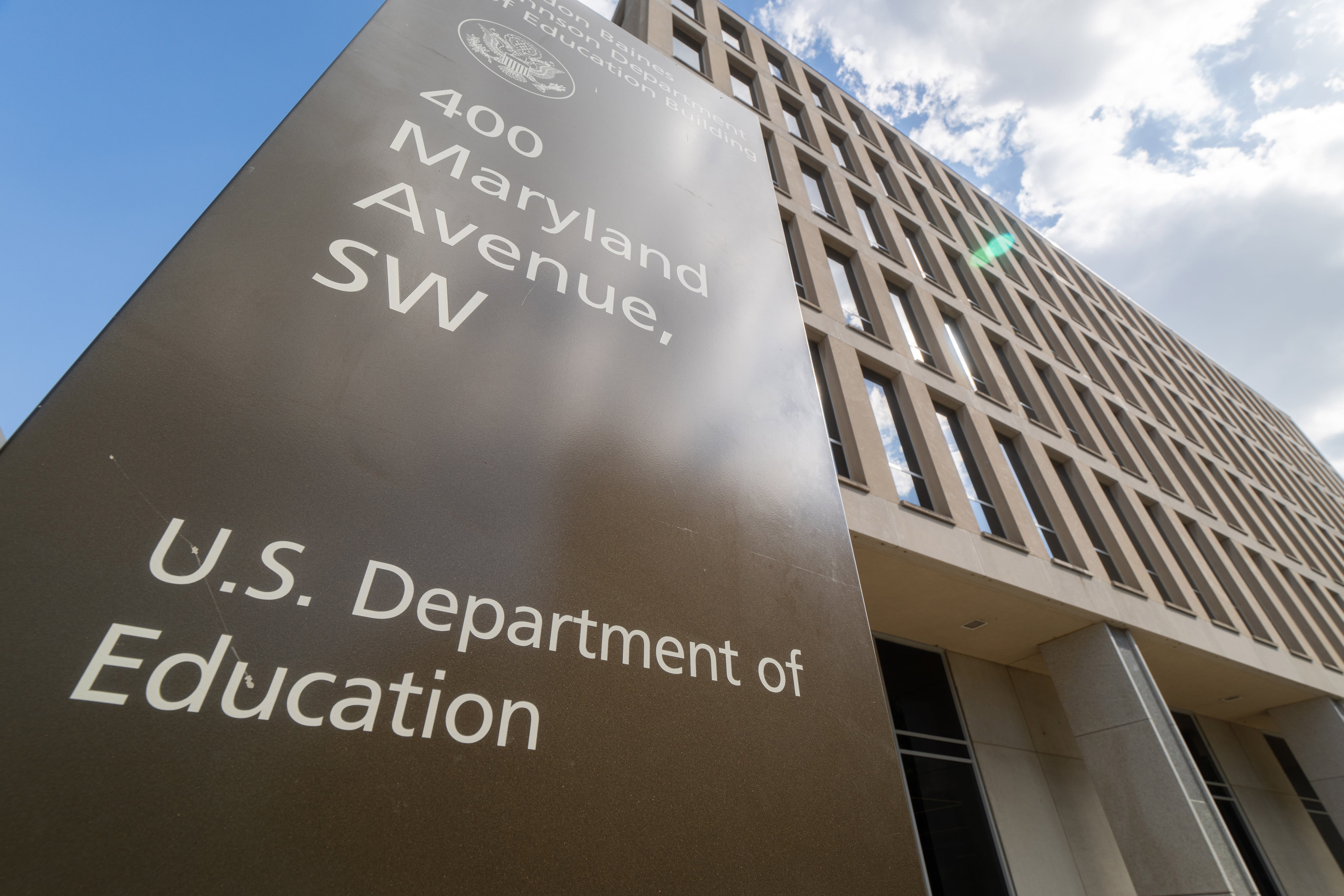Sign up for Chalkbeat’s free weekly newsletter to keep up with how education is changing across the U.S.
A federal hearing about special education teacher shortages turned into a debate about how the potential elimination of the U.S. Department of Education would affect students with disabilities.
The exchange, which occurred Friday during a public briefing of the U.S. Commission on Civil Rights, speaks to how Donald Trump’s election is already shaping education policy discussions amid widespread uncertainty about how his proposals could play out.
Trump vowed on the campaign trail that he would dismantle the federal Education Department and hand more control over education to the states. The federal law that guarantees students with disabilities a right to a free and appropriate public education dates back to 1975, before the Education Department existed as a standalone entity. That law would remain on the books even if the department were disbanded, but it’s less clear how funding would change or who would be responsible for protecting students’ rights.
Eliminating a federal department would require an act of Congress. Trump has not spelled out exactly how special education funding or administration would change if that happens, but some have made suggestions.
Project 2025, a political playbook written by former Trump White House officials, for example, calls for turning most federal funding for special education into “no-strings” grants for school districts distributed by another agency altogether: the Department of Health and Human Services. Trump has tapped Robert F. Kennedy Jr., a vaccine skeptic with no education experience, to lead that agency.
Project 2025 also calls for moving the Office for Civil Rights and any “assets” in the federal special education office that work on discrimination to the Department of Justice. There, civil rights enforcement would be done through lawsuits, not investigations, as they’re done now in the Education Department.
At the briefing, Commissioner Mondaire Jones, a Democrat and former congressman, asked a panel of experts whether eliminating the Education Department would have an effect on students with disabilities and the shortage of educators to teach them.
Several panelists said the federal government still needs to fund education, even if the Education Department no longer exists.
Eric Hanushek, a prominent education researcher of school funding and a senior fellow at Stanford University’s Hoover Institution, said he thought the proposal was more of a “political statement about how much we want Washington to be intruding in state education policy,” and that it wouldn’t actually change much for students with disabilities.
It would still be Congress’ job to decide how much to spend on fulfilling the Individuals with Disabilities Education Act, Hanushek said, even if funding were disbursed through another agency, like a revamped Health and Human Services Department.
“I don’t think it has any obvious impacts on IDEA funding,” Hanushek said. “I personally think that the federal government should have a larger responsibility in special education funding.”
But he cautioned that students with disabilities could get less immediate attention without an education secretary calling attention to their needs from the bully pulpit. Eliminating the department and moving its work elsewhere could also jeopardize data collection and research about students with disabilities, Hanushek said.
William Trachman, the general counsel at the Mountain States Legal Foundation, a conservative law firm that’s suing the Biden administration over its Title IX rules, said the answer would depend on what replaces the Education Department.
“It is not going to happen that there is no federal role in special education whatsoever,” he said. Whether the Department of Justice takes over civil rights enforcement, whether special education moves to HHS, or whether states get block grants to use for special education, “a lot of the impact of what happens is going to be revealed through those details.”
Others said eliminating the Education Department would have serious consequences for students with disabilities.
Tuan Nguyen, an associate professor at the University of Missouri who studies teacher labor markets, said he worried that without a federal Education Department putting pressure on states to require certain standards for teaching, who ends up working with students with disabilities would be a “free-for-all.”
“Years of evidence have shown that when states don’t have a mandate to make sure that our teachers are licensed and qualified, they’ll put anybody they can in the classroom,” Nguyen said.
Amanda Levin Mazin, a senior lecturer at Columbia University’s Teachers College, said she worried that without an Education Department, there would be cuts to incentives that help people enter the special education teaching profession. The Education Department has the discretion to award a variety of grants to school districts, universities, and others to support teacher recruitment and pipeline development.
Jessica Levin, the litigation director of the Education Law Center, a nonprofit that advocates on behalf of students with disabilities, said she worried that eliminating the department would hurt the enforcement of students’ civil rights. Historically, most federal civil rights complaints in education are related to a student’s disability.
“The Department of Education and the experts within it play a crucial role in enforcing those civil rights for students with disabilities across the country,” she said. “This is an incredibly dangerous proposal, both on a practical and symbolic level.”
Kalyn Belsha is a senior national education reporter based in Chicago. Contact her at kbelsha@chalkbeat.org.







